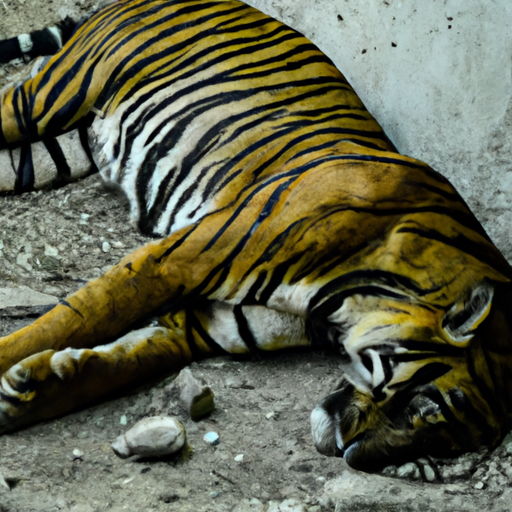 Introduction:
Introduction:
Sleep is a fundamental physiological process that is crucial for the well-being and survival of all living organisms. While humans spend approximately one-third of their lives asleep, have you ever wondered if all animals share this need for rest? In this article, we will embark on a fascinating journey through the animal kingdom, exploring sleeping patterns and behaviors across various species to shed light on the question: Do all animals sleep?
Defining Sleep:
Before delving into the sleeping patterns of different animals, it is essential to establish a common understanding of what sleep entails. Sleep is characterized by a reversible state of unconsciousness, during which an organism’s movements and responses to stimuli are significantly reduced. It is a period of rest and rejuvenation that allows the body to repair itself, conserve energy, and consolidate memories.
Vertebrates:
1. Mammals:
Mammals, including humans, are known for their distinct sleep patterns. They exhibit both rapid eye movement (REM) sleep and non-rapid eye movement (NREM) sleep. REM sleep is associated with vivid dreaming, while NREM sleep is a deeper, more restful state. However, the duration and distribution of sleep vary substantially among mammals.
2. Birds:
Birds, despite being distant relatives of mammals, also exhibit sleep patterns similar to humans. They experience both REM and NREM sleep, but with a few differences. Birds have the remarkable ability to sleep with one hemisphere of their brain at a time, allowing them to remain vigilant for predators while still getting some rest.
3. Reptiles and Amphibians:
Reptiles and amphibians have less defined sleep patterns compared to mammals and birds. However, studies have shown that they do exhibit periods of rest, characterized by reduced activity and lowered responsiveness to stimuli. While they may not experience REM sleep, they still engage in a state of restful inactivity.
Invertebrates:
1. Insects and Arachnids:
Insects and arachnids have complex behaviors and varied sleeping patterns. Some insects, like bees and ants, exhibit a cyclical pattern of rest and activity, known as a circadian rhythm, which allows them to conserve energy. However, many insects do not exhibit a traditional sleep-like state as seen in vertebrates, but instead experience periods of inactivity or reduced responsiveness.
2. Crustaceans:
Crustaceans, such as crabs and lobsters, also exhibit rest periods but lack a well-defined sleep pattern. They often enter a state of torpor, during which their metabolic rate decreases, allowing them to conserve energy. However, this state is not equivalent to sleep as experienced by mammals.
3. Mollusks and Other Invertebrates:
Mollusks, such as snails and slugs, and other invertebrates have relatively simple nervous systems, and their sleep-like behaviors are not extensively studied. While they exhibit periods of rest, it is challenging to determine whether they experience sleep in the same way vertebrates do.
Marine Animals:
1. Fish:
Fish sleep patterns vary widely across species. Some fish, like sharks, have to maintain constant movement to ensure oxygen flow over their gills, which prevents them from experiencing a traditional sleep state. However, many other fish species do exhibit periods of rest, during which they reduce their activity levels and seek out shelter.
2. Marine Mammals:
Marine mammals, including whales, dolphins, and seals, have unique sleep adaptations due to their aquatic lifestyle. They engage in a phenomenon called unihemispheric sleep, where only one hemisphere of their brain sleeps at a time. This allows them to maintain essential functions like breathing and surfacing while getting rest.
Conclusion:
While sleep patterns vary significantly across the animal kingdom, it is safe to conclude that most animals do engage in some form of rest or sleep-like behavior. However, the depth, duration, and mechanisms of sleep vary greatly depending on the species. Understanding sleep patterns in different animals not only provides valuable insights into their physiology but also highlights the importance of restful periods for overall well-being and survival. Sleep remains an intriguing and complex phenomenon, and further research is necessary to unravel its mysteries across the vast array of animal species that inhabit our planet.
